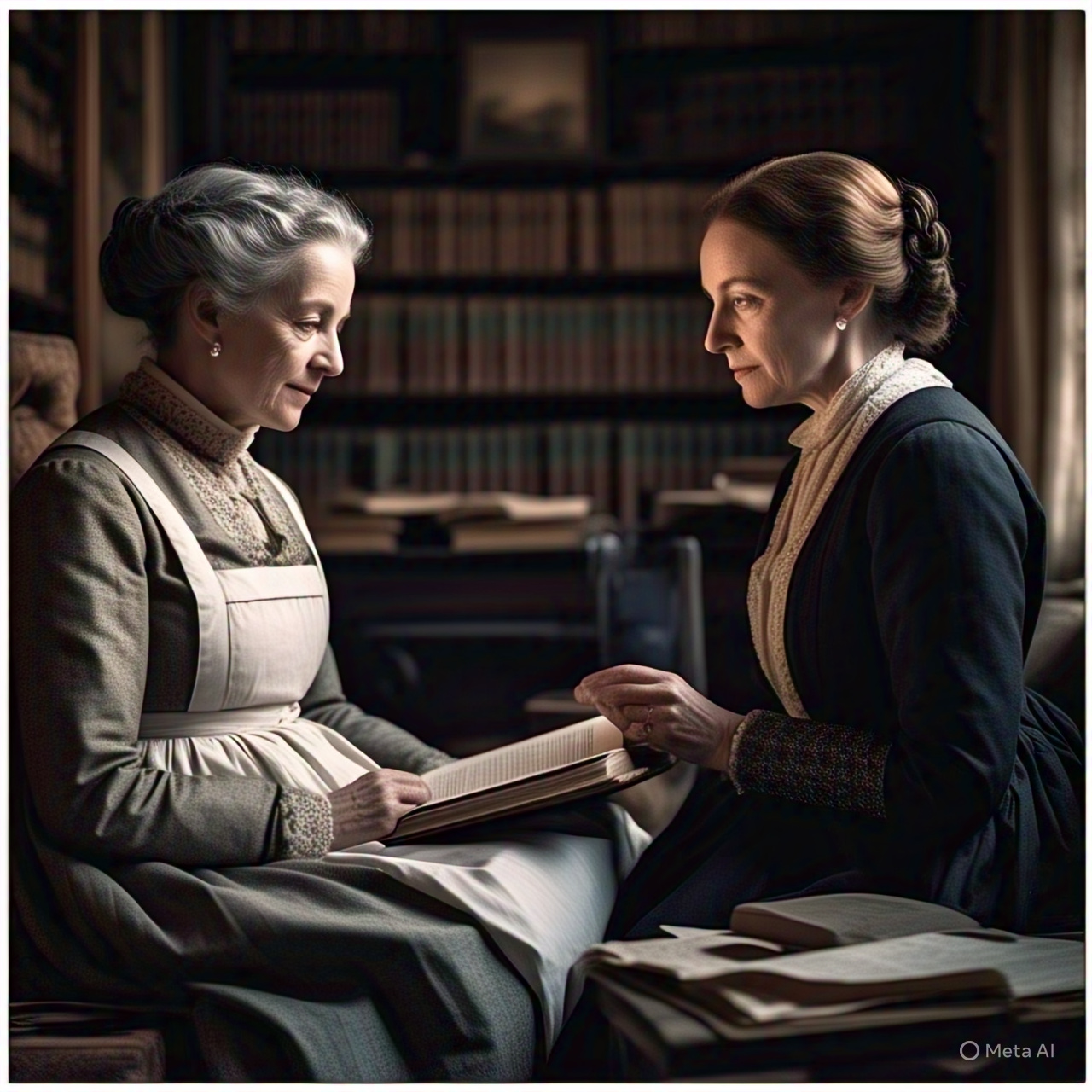Massachusetts, 1866
A late winter sun spilled across the parlor rug, casting long golden streaks onto the worn armchairs and tea table. In one sat Jane Austen, spectacles low on her nose, a faint crease between her brows as she flipped through the final pages of The Innocents Abroad. Opposite her, Charlotte Brontë reclined, arms folded, already frowning.
“He calls a cathedral a barn,” Charlotte said, breaking the silence. “Then he compares it to a ship, then a goat. I can hardly keep up.”
“He enjoys chaos,” Jane replied, her voice mild but edged with amusement. “There is precision in it, but it dances so quickly one forgets where it began.”
Charlotte sniffed. “It lacks discipline. Structure. He’s charming, yes, but the narrative is slippery.”
“Deliberately so. He guides the reader by wit rather than by compass. I suspect he considers digression a virtue.”
“Then I pity his editor.”
Jane smirked, setting the book aside and pouring more tea. “Still, you laughed. Twice. I heard you.”
“Once. And only because he described an Italian tour guide as a ‘damp sponge soaked in romance.’”
“A poetic insult. One might say it rivals some of yours.”
Charlotte softened, reluctantly. “His language is crude at times. Undeniably American.”
“Yes,” Jane said thoughtfully. “But alive. As if the sentences were spoken before they were written.”
“I don’t write to mimic speech.”
“Nor I. But he does, and it suits him.”
Charlotte tapped a finger on the cover. “Do you think it will last?”
Jane shrugged. “He captures a particular moment in time. A mood. Whether the world will need it again is uncertain. But it knows itself, which is more than most books can say.”
They sipped tea in quiet.
“He’d hate us, wouldn’t he?” Charlotte said finally.
“He already does,” Jane said dryly. “Or did, before today.”
Charlotte chuckled. “I almost admire that.”
“Almost?”
“I don’t admire men easily.”
“We have that in common.”
A longer silence followed. The fire hissed softly.
Jane glanced toward Charlotte’s writing desk. “You were scribbling there the other morning. What was it?”
Charlotte shifted uncomfortably. “Nothing for public eyes. Just something about… this. Us.”
Jane’s brow lifted. “Our cohabitation?”
“If you must name it.”
“And why hide it?”
Charlotte looked into her teacup. “Because the writing sounds American. I find myself using contractions. I described the kettle as ‘clattering like a runaway wagon.’ That’s not Brontë. That’s… Clemens.”
Jane laughed, a warm ripple. “So the contagion spreads.”
“It unnerves me.”
“Perhaps. Or perhaps it means your voice is learning a new accent, not losing its own.”
Charlotte grunted. “I’d still rather burn it.”
Jane sipped again, eyes twinkling. “Save it instead. Someday a girl with ink on her hands may find her way into your sentences, and thank you for them.”
Outside, snow fell gently on the silent trees. Inside, two great minds sat warmed by fire and prose, disagreeing peacefully beneath the low, flickering light.

